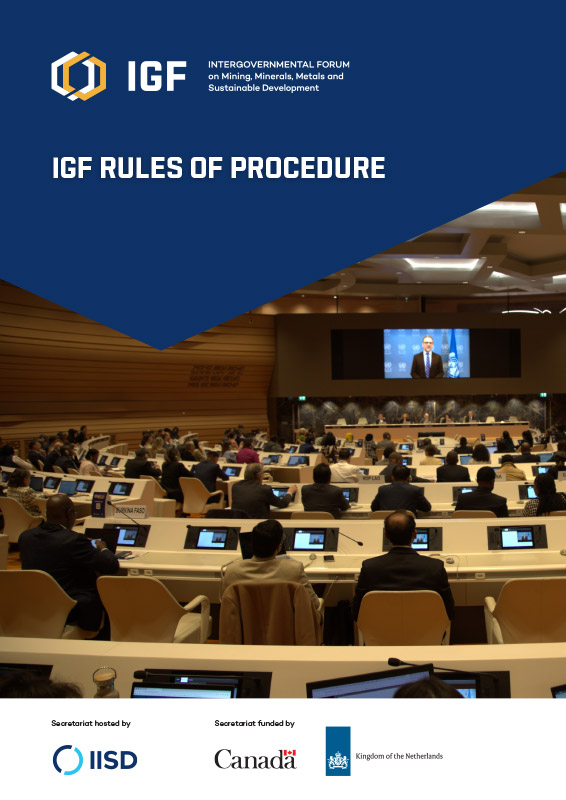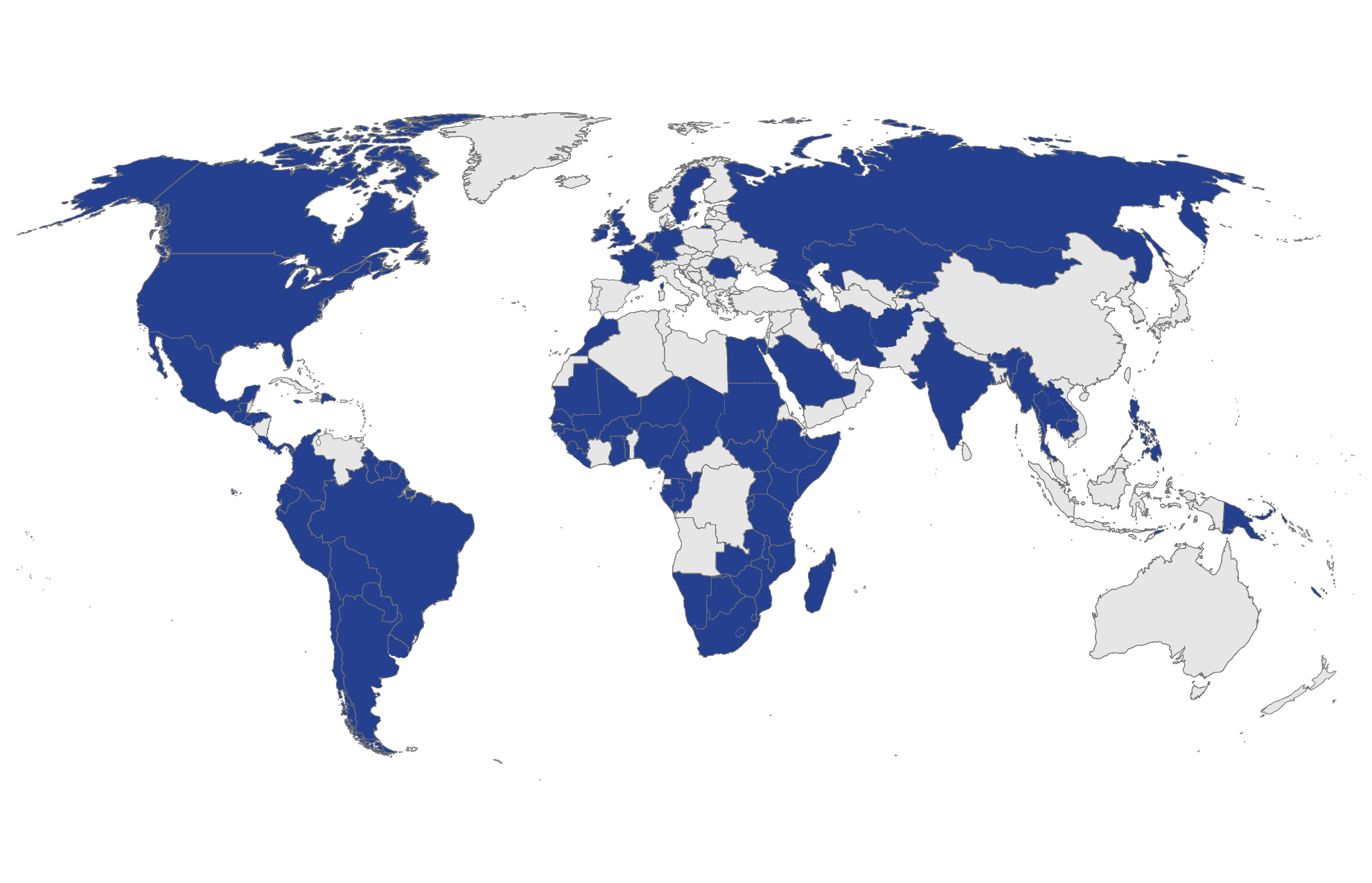How to Become a Member
To become a member, a country representative must notify the Secretariat of their interest. The Secretariat will then provide the necessary membership documentation, which includes a confirmation of their governments’ acceptance of the Rules of Procedure and designate a contact in the ministry or agency responsible for the mining, minerals, or metals sector as the national focal point for the IGF.
Governments interested in becoming a member should contact the Secretariat at Secretariat@IGFMining.org.
The IGF is a voluntary partnership, and membership has no legal, contractual, or financial requirements from member countries. Any member state of the United Nations may become a member.

























































































